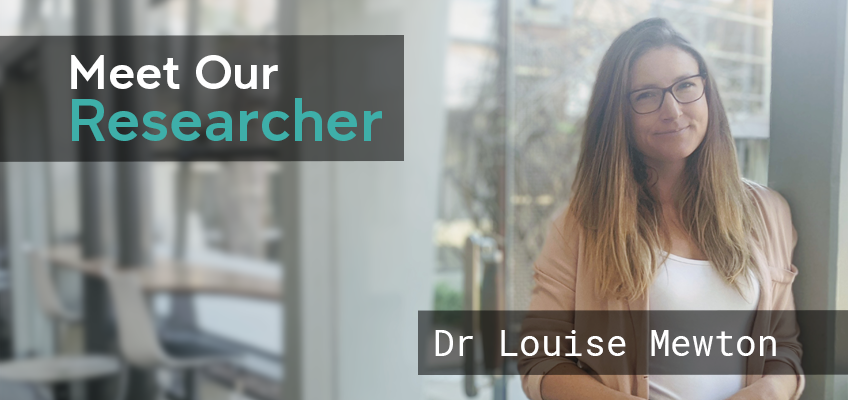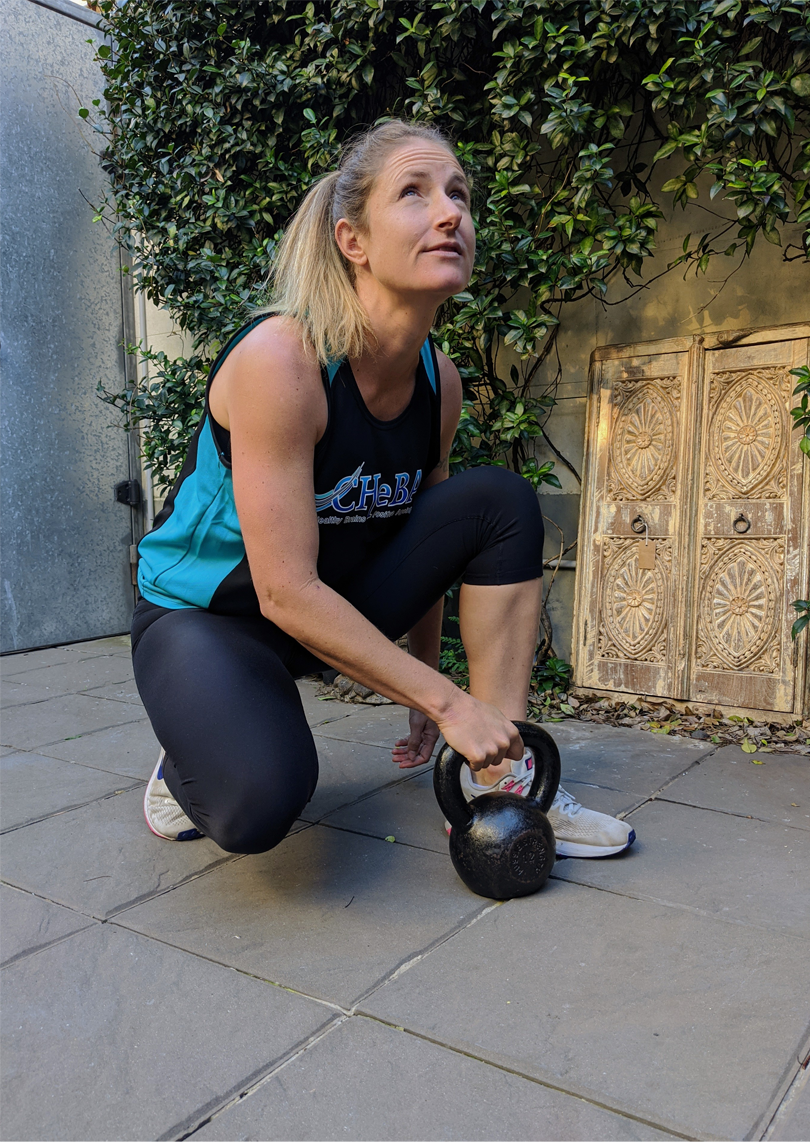03 Aug 2020

Risky alcohol consumption is often associated with younger people. However, Australian national statistics indicate that risky alcohol use is becoming increasingly prevalent among older adults. In fact, over 10% of older adults engage in high risk alcohol consumption on a daily basis. Dr Mewton hopes that through her research she will uncover the true relationship between risky alcohol use and cognitive decline.
How did you get into researching the ageing brain?
My interest in researching the ageing brain only came about quite recently. My PhD and postdoctoral research predominantly focused on risky alcohol use in young people, and the effects that alcohol use has on the developing brain. By comparison, very little research has focused on the other end of the age spectrum – the effects of alcohol use on the ageing brain. This is largely because the rates of risky drinking have traditionally been relatively low in older adults. Recent data has challenged this – older adults are now drinking at risky levels much more frequently. Just like we need to understand the effects of alcohol use on the developing brain, we also need to understand what effects risky alcohol use has on brain ageing.
Did you experience a ‘defining moment’ which led you to this field?
I had been working with my team at the National Drug and Alcohol Research Centre for a few years when I was successful in applying for a UNSW Scientia Fellowship. This was a really exciting career achievement and an opportunity to contribute to UNSW’s research vision, priorities and impact. Not long after I received the advice I had been successful in the application, my team at the National Drug and Alcohol Research Centre announced they were moving from UNSW to start a new research centre at the University of Sydney. This meant I had the exceptionally difficult choice of either remaining with the team I knew and had worked with for years or staying at UNSW and taking full advantage of the opportunities the UNSW Scientia Fellowship offered. This decision provided me with an opportunity to sit down and ponder what research I wanted to be doing in the future and where I wanted to be. It was a really good opportunity to reflect on my career achievements and consider the future direction of my career and how I saw my research impacting people’s lives. I had worked with Professor Perminder Sachdev, one of CHeBA’s Co-Directors, previously and knew that CHeBA was a dynamic and exciting place to work.
As a researcher with CHeBA I could see the ways in which I could expand my research into new directions – shifting my focus from younger populations to older adults and having an impact on people’s health across the lifespan.

Do you have any personal interests or activities which are protective behaviours against cognitive decline?
I really enjoy exercising; it is wonderful for my mental health - especially in the current climate with all the extra stressors we are facing as a result of the global pandemic. I mainly run but I also do weight training – I love to do a mix of both aerobic and resistance training with both considered protective against cognitive decline. I also largely follow a Mediterranean diet which evidence indicates is protective for cognitive health. Conducting research every day and solving problems is also a wonderful way to keep my brain fit.
What are you currently researching?
My program of research is primarily about understanding and preventing risky alcohol use across the lifespan. I am looking at the epidemiology of risky alcohol use in older adults. This is about understanding the prevalence of, and risk factors for, risky alcohol use in older adults. Then, with a goal of having an impact on the lives of older Australians, I aim to translate this knowledge about prevalence and risk factors into alcohol prevention strategies. I have two studies which have been recently funded. The first study is using international longitudinal cohort studies of older adults to determine whether low to moderate alcohol use is protective in terms of cognitive decline and dementia. There are some studies that indicate that low to moderate alcohol use may be protective against cognitive decline when compared with both abstaining and risky alcohol use. Recent research is challenging that notion by applying more rigorous research methods. As such, I am using some of these more rigorous methods to have a closer a look at whether or not low to moderate alcohol use is actually protective in terms of cognitive outcomes for older adults. I have also just received another grant to build an online intervention specifically developed for older risky drinkers. We’re conducting a large randomised controlled trial to see whether this online intervention is effective in reducing alcohol consumption in older risky drinkers. Importantly, we are also investigating whether reductions in risky drinking also lead to improvements in brain health.
This will be one of the first studies internationally to investigate whether reducing alcohol use leads to improvements in cognition in older adults.
Why is your research important?
I am looking at the relationships between two of the largest contributors to the burden of disease - alcohol use and dementia. I am focused on reducing the impact of both of these in older people so ultimately people live longer, disability-free lives.
What do you love about working for CHeBA?
One of the amazing things about CHeBA is the different areas of expertise that are covered. You have expert groups that are focused on either side of the biological and social sides of brain ageing. The breadth of expertise that CHeBA has is just extraordinary, and really stands out to me.
What is the ultimate hope you have for your research?
Ultimately, I would like to reduce the burden of disease associated with alcohol use and dementia. At the moment, alcohol use is overlooked in older people. We think risky drinking is a young person’s issue but that is not the case anymore. Young people are actually drinking less. More and more, it is the older adults, the ‘Baby Boomer’ generation, who are drinking at risky levels. We really do not know much about the cognitive effects of risky drinking in older adults. When I talk about risky drinking, I’m talking about five or more standard drinks per occasion. Older adults are the most likely age group to drink in that risky pattern every day - about 10% of older adults are drinking in that pattern on a daily basis. This is increasingly being viewed as a serious issue but it is still a hidden and overlooked problem in our society. I think we need to be properly informed about what sort of effect this drinking pattern has on our risk for cognitive decline and dementia.
This interview was undertaken during the COVID-19 self-isolation period. Dr Louise Mewton found that having video calls with family and friends, as well as competing in – and winning - the UNSW Movement Challenge as the ‘BrainBugs’ with fellow CHeBA colleagues, supported her mental resilience and kept her feeling socially connected while physically isolated.
Donations are fundamental for critical research to continue following COVID-19.
If you would like to discuss supporting Dr Mewton's work specifically, or would like information
on leaving a legacy via a Gift in your Will, please contact h.douglass@unsw.edu.au.

Dr Louise Mewton is a UNSW Scientia Senior Lecturer at CHeBA. Dr Mewton’s research focuses on the application of innovative methods and technologies to further our understanding of the epidemiology, assessment and prevention of problematic alcohol use across the lifespan. She is currently using large-scale harmonised data from CHeBA’s COSMIC study to investigate trajectories of alcohol use in older adults and their relationship with physical health and cognition. Dr Mewton obtained her Honours in Psychology at the University of Sydney and her PhD at the National Drug and Alcohol Research Centre through the University of New South Wales.
